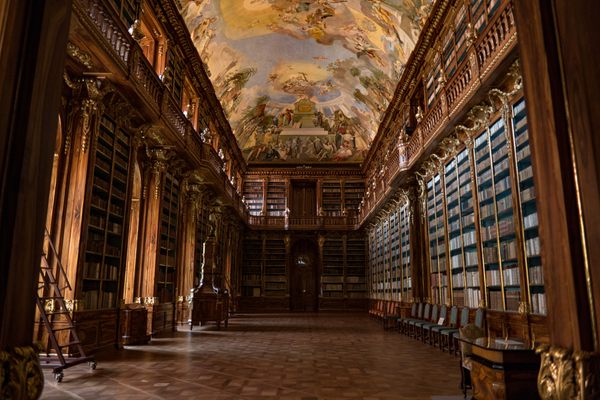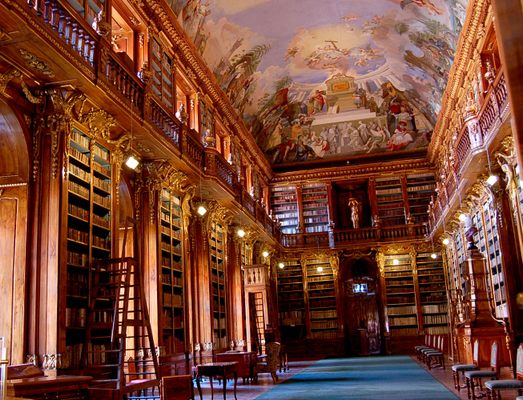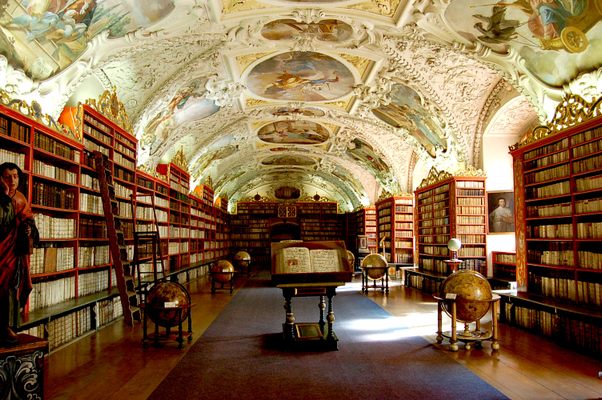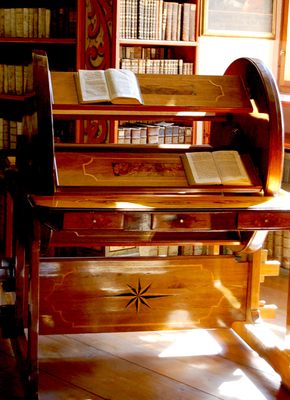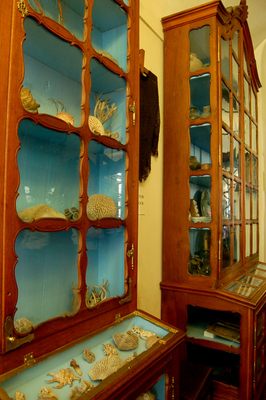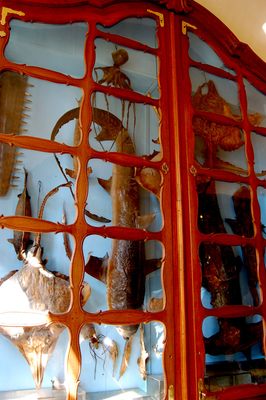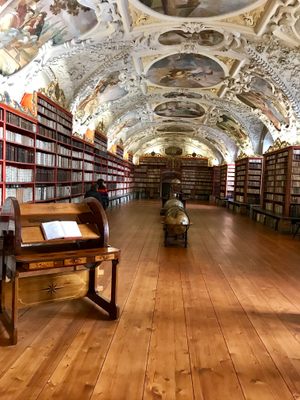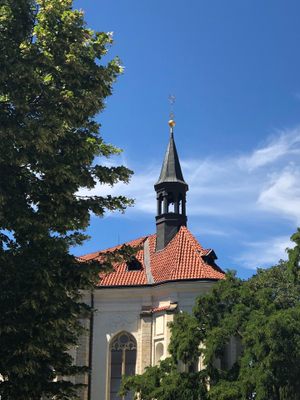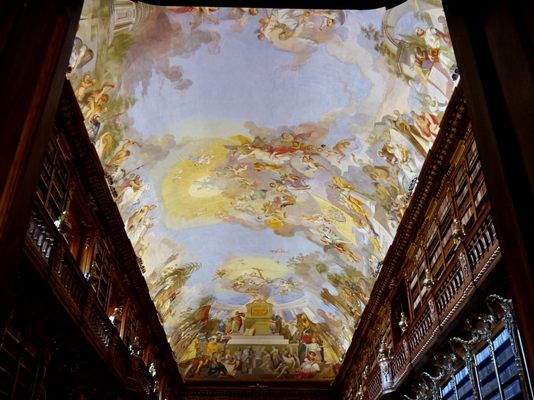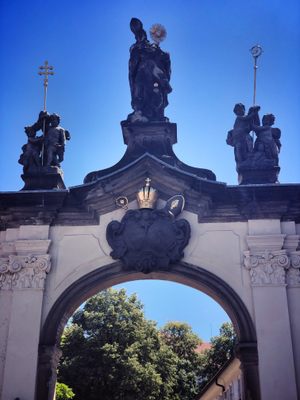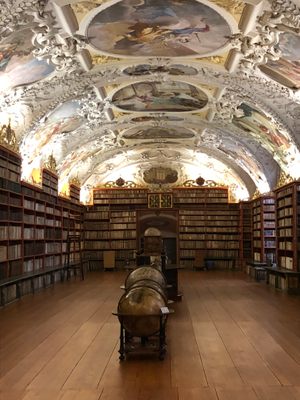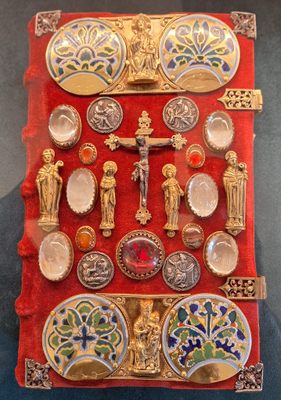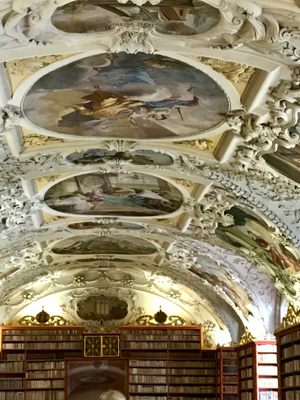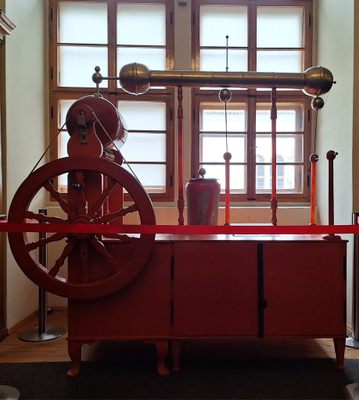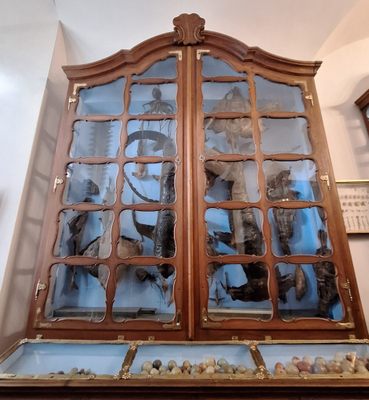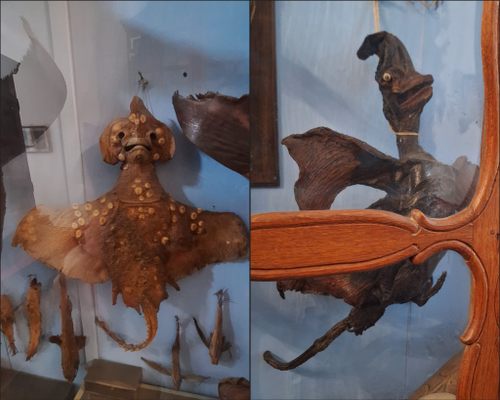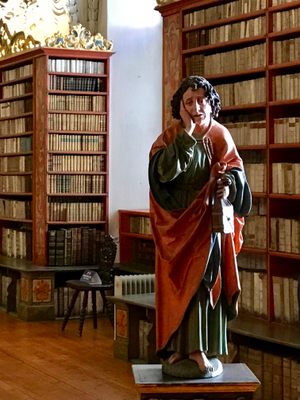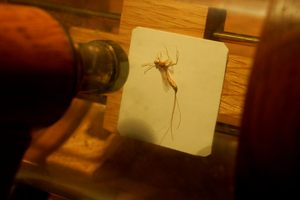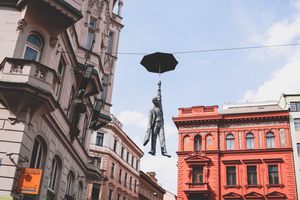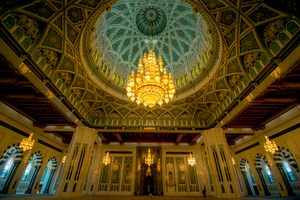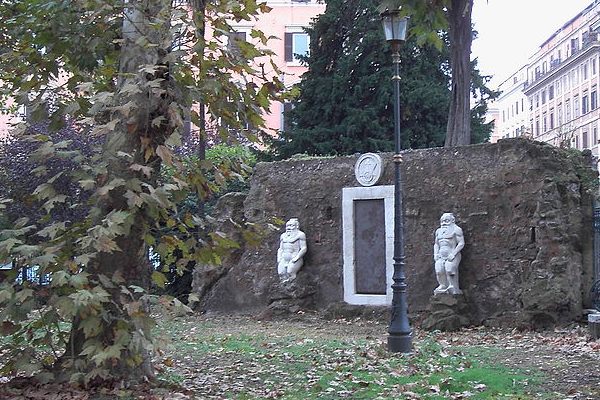About
Tucked away on the top of a hill in Prague is the Strahov Monastery, the second-oldest monastery in the city.
It was built in 1140 and has been rebuilt numerous times since, due to the ravages of various wars. It is likely not the monastery itself, nor its church, however, that astonishes visitors. That distinction goes to the the library within its walls.
The library is divided into two major halls: the Baroque Theological Hall contains 18,000 religious texts, and the grand Philosophical Hall has over 42,000 ancient philosophical texts. The libraries hold many rare volumes, are masterfully frescoed, and contain 17th-century geographical globes.
Above the shelves of the Theological Hall are gilded wooded-carved decorations with wooden cartouches. These functioned as a sort of beautiful early card catalogue system. The pictures in the wooden cartouches and their titles specified the type of literature stored on the shelves below.
Of special note is the compilation wheel, used by 17th-century scribes to compile texts. The scribe would place various texts that he needed to copy from on the wheel, which functioned as a kind of rotating shelf. A planetary mechanism inside ensured that the books were always held at the same angle, even as they spun around.
Strahov also contains a beautiful cabinet of curiosities, brought to the monastery from the estate of Karel Jan Erben in 1798. The hall of cabinets include bits of a dodo bird, a large 18th-century electrostatic device, numerous old ocean specimens, insects, minerals, anthropological artifacts, and for unclear reasons, many glass cases full of wax fruit.
Related Tags
Know Before You Go
Trams No 22,23 to Poho.
One must purchase tickets in the building at the entrance, across the courtyard to the left of the gift shop. Check website for availability, pricing, and further information.
The Library and Gallery are located a few yards further in on the right. There are separate entrance fees for both. Highly recommend purchasing tickets for both, as you only have visual access to the Library from behind a rope. Whereas the Gallery allows you more freedom of movement.The Na Pekle restaurant, (uphill and to the right), is in caverns which is of interest and the food is quite good as well.
Community Contributors
Added By
Published
September 10, 2009
